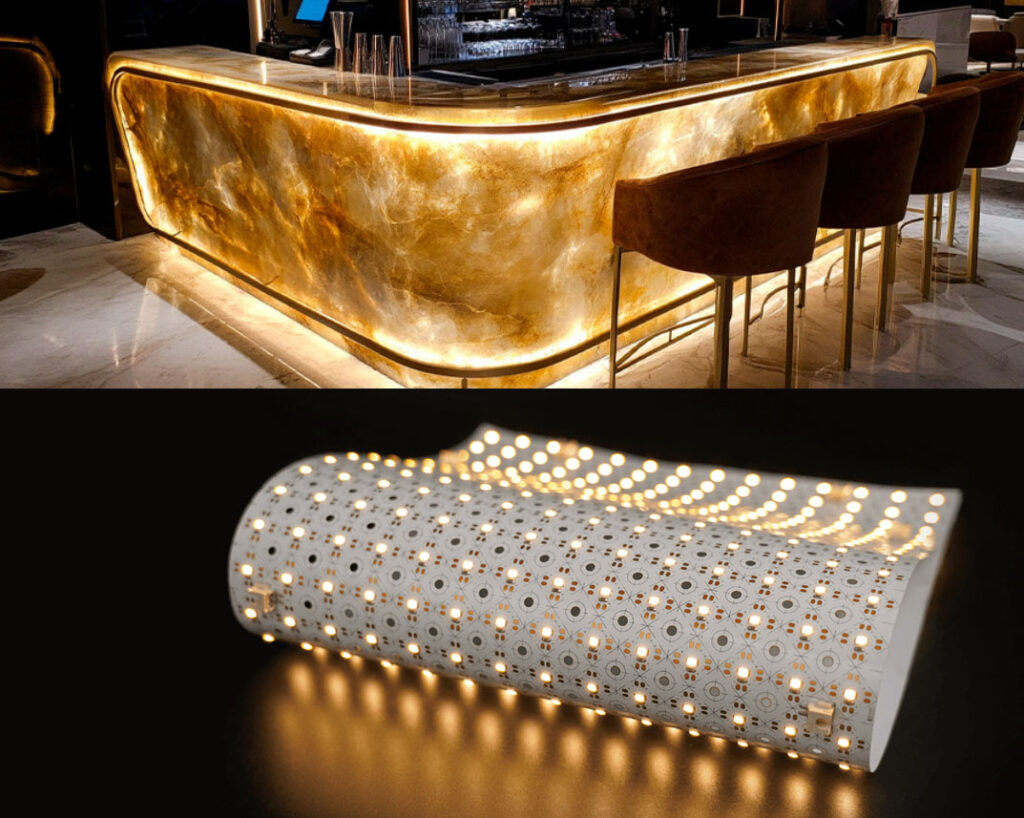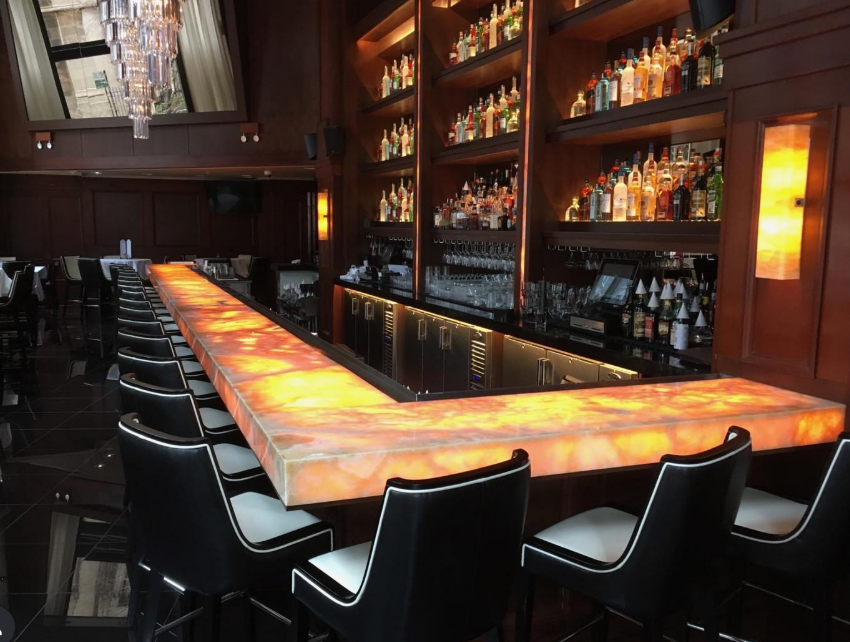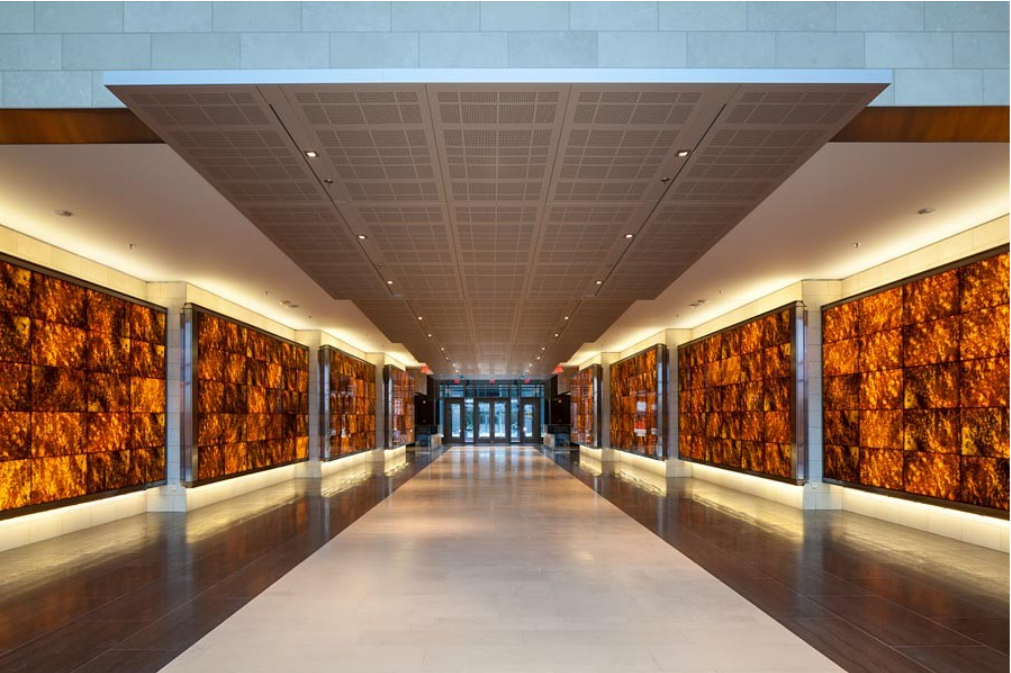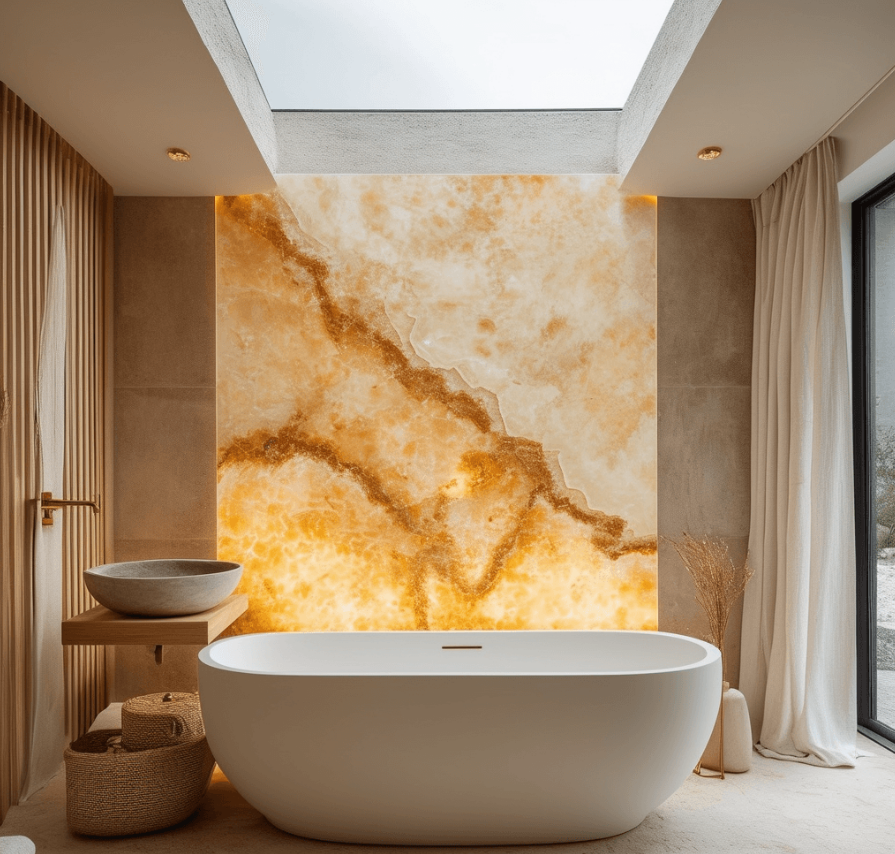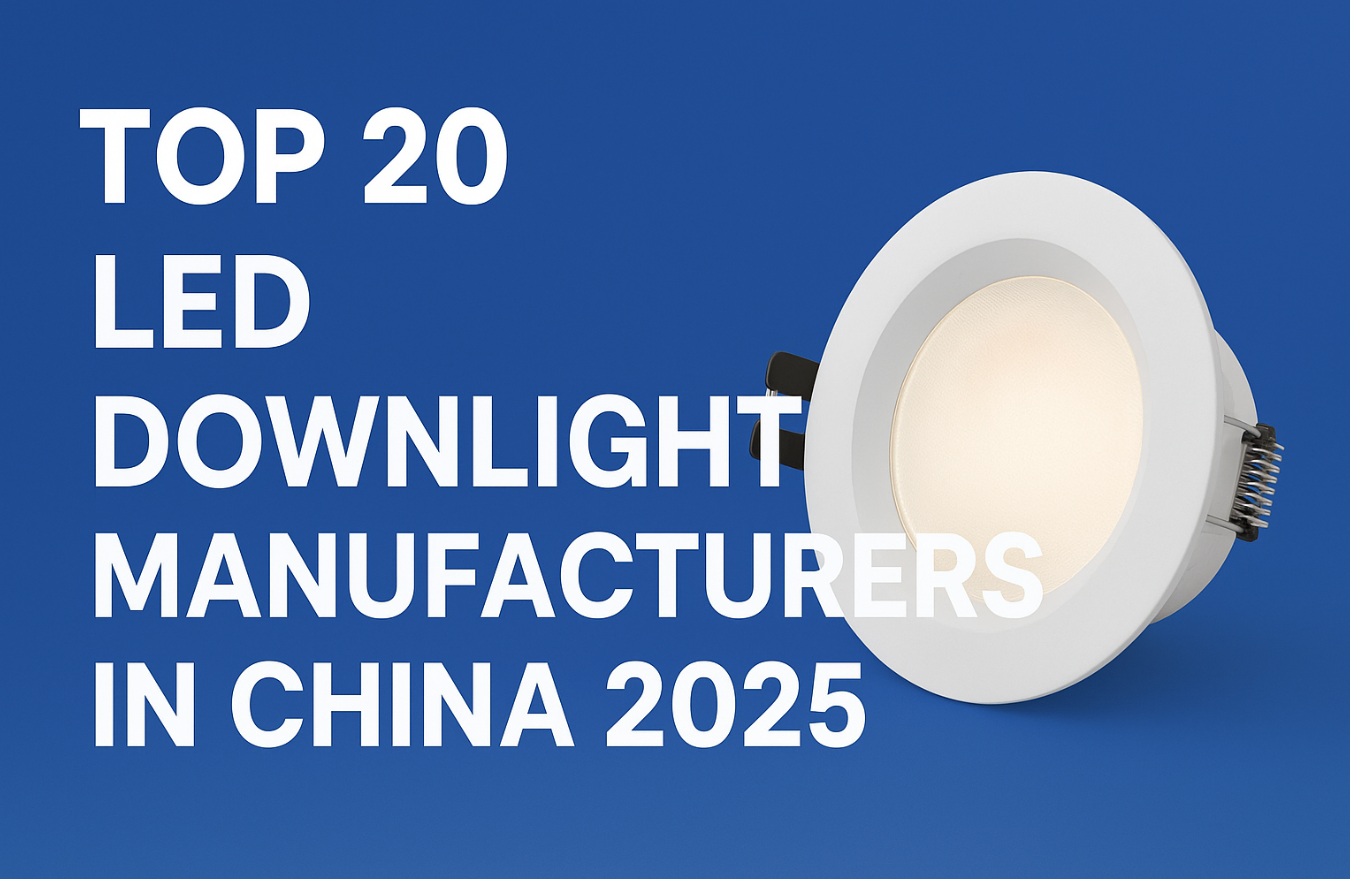Uneven brightness, hotspots, and poor diffusion are common backlighting problems. Choosing the wrong light source guarantees failure. This is the definitive engineering comparison.
What’s the Difference?
LED Sheet Light is a high-density, surface-illumination module designed for uniform backlighting of stone, acrylic, and feature panels. LED sheets provide superior diffusion, brightness, uniformity, scalability, and minimal installation depth. LED strips are linear lighting products made for accent, indirect, or edge lighting—not for surface illumination. LED strips require deeper cavities and often create visible dots or banding. For marble, onyx, signage, and feature walls, LED Sheet Light is the correct professional solution.
Understanding the Two Products
Backlighting is often misunderstood, and many designers and installers mistakenly use LED strips for applications where uniform surface illumination is required. Below is a technical explanation of both products.
What Is LED Sheet Light?
LED Sheet Light is a matrix-type lighting module designed to provide full-surface, uniform, dot-free illumination.
Technical Breakdown
LED sheet modules typically include:
A uniform grid/matrix LED layout (392 / 784 / RGBW versions)
High-density LED chips to eliminate hotspots
Thin PCB or FPC substrates
Flexible cuttable segments
High brightness for thick or low-translucency materials
Minimal installation depth (20–40 mm)
Key Benefits
✔ Surface light source (not linear)
✔ Perfect uniformity
✔ Low cavity depth
✔ Modular and cuttable
✔ High brightness for stone
✔ Excellent thermal management
✔ Ideal for professional architectural backlighting
Typical Applications
Backlit marble & stone
Onyx feature walls
Retail display panels
Ultra-thin lightbox
Hotel lobby feature walls
Acrylic backlit panels
Art installations
What Is LED Strip?
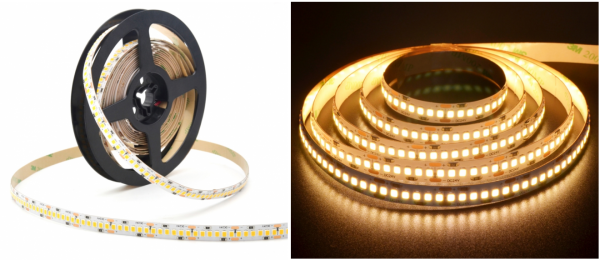
LED strips are linear lighting tools designed for indirect or decorative lighting—not large-area backlighting.
Technical Breakdown
LED strips feature:
Linear FPC with evenly spaced LEDs
SMD or COB structure
12V / 24V input
Designed for “line lighting”
Not intended to act as a face-lit surface source
Where LED Strips Work Well
Cove lighting
Ceiling slots
Under-cabinet lighting
Furniture lighting
Shelf lighting
Display edge lighting
Accent / perimeter lighting
Where LED Strips Do NOT Work
Large-area backlighting
Translucent stone
High-uniformity applications
Ultra-thin lightboxes
LED Sheet Light vs LED Strip — Full Technical Comparison
LED sheet outperforms strips in every specification that matters for backlighting.
| Feature | LED Sheet Light | LED Strip |
|---|---|---|
| Light Type | Surface Light | Linear Light |
| Uniformity | ★★★★★ | ★★ |
| Installation Depth | 20–40 mm | 60–120 mm |
| Hotspots | None | Visible |
| Diffusion Performance | Excellent | Limited |
| Large-Area Backlighting | ✔ Yes | ✘ No |
| Stone Backlighting | ✔ Best Choice | ✘ Not Suitable |
| Brightness | High | Medium |
| Scalability | Excellent | Moderate |
| Maintenance | Easy | Moderate |
Conclusion:
LED strips cannot replace LED sheet modules in any professional backlighting application.
Why LED Strips Fail in Backlighting
LED spacing, limited diffusion, and insufficient coverage make strips unsuitable for backlighting.
Technical Reasons
❌ 1. LED spacing is too wide
Even COB strips cannot achieve true surface illumination.
❌ 2. Linear lighting creates “banding”
Strips produce bright and dark lines under translucent surfaces.
❌ 3. Deep cavity requirement
Strips need 60–100 mm of depth to reduce hotspots—often impossible in walls or panels.
❌ 4. Brightness is insufficient
Stone (marble/onyx/quartzite) requires higher brightness and wider coverage.
❌ 5. Poor scalability
Multiple strips cause uneven brightness when viewed through a surface.
For real-world examples of stone backlighting, see: Backlit Onyx Lighting Guide
When Should You Choose LED Sheet Light?
Choose LED sheet light whenever you need uniform, dotless, full-surface illumination.
Best Applications
Backlit marble & stone
Backlit onyx
Thick quartzite panels
Hotel lobby feature walls
Retail display backdrops
Lightbox and signage
Large decorative panels
Acrylic diffusion panels
Art installations
For marble and stone wall applications, read: Backlit Marble & Stone Feature Walls
When Should You Choose LED Strip?
Use LED strips for linear and indirect lighting—not backlighting.
Best Applications
Cove lighting
Furniture lighting
Cabinet lighting
Shelf and retail accent lighting
Under-counter lighting
Decorative lines
Perimeter glow effects
LED strips = Line lighting
LED sheet = Surface lighting
They are not interchangeable.
How to Decide Between LED Sheet and LED Strip
✔ Choose LED Sheet Light if you need:
Uniform surface illumination
Stone backlighting
Ultra-thin backlit panels
High brightness
Small cavity depth
✔ Choose LED Strip if you need:
Linear lighting
Simple decorative effects
Budget-friendly lighting
Hidden slot lighting
The application determines the correct product.
Need installation guidance? Here is the full beginner guide: How to Backlight Translucent Stone — Step-by-step
Conclusion
LED Sheet Light is the professional choice for any backlighting application.
LED Strip is excellent for linear or indirect lighting, but cannot achieve uniform, dotless surface illumination.
Choosing the correct light source ensures your project looks professional and performs reliably.
Looking for LED sheet lighting for your backlit onyx project?
AiDiWatt Lighting provides 392, 784, and RGBW LED sheets with factory-direct support.
Contact us for a fast quote and technical guidance.
